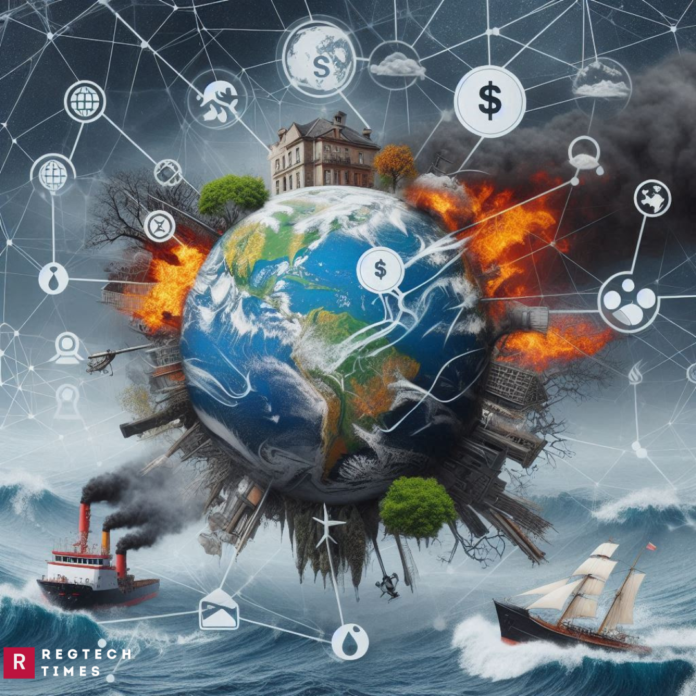An ongoing investigation reveals a startling trend: U.S. government sanctions now target about one-third of all nations worldwide. This means many countries face some form of financial penalty, impacting their people, properties, or organizations. The financial pressure from these sanctions has created a booming industry for lobbyists in Washington, D.C. By 2022, the amount spent on lobbying for sanctions had increased from about $6 million in 2014 to at least $31 million. This dynamic is particularly concerning given the urgent need for global cooperation to address climate change, as many of the sanctioned countries struggle to invest in sustainable practices and technologies essential for mitigating its effects.
This rise in sanctions comes at a time when the global climate change situation is becoming increasingly dire. A recent report from an international environmental agency warns that the world is on track to experience a temperature rise between 2.6 and 3.1 degrees Celsius by the year 2100. The objective of limiting global warming “well below two degrees,” as stated in a major climate accord, is much lower than this. Last year, greenhouse gas emissions reached record levels, climbing 1.3 percent from the previous year. Countries are struggling to meet even the modest emissions reduction targets they set for themselves.
With the world heading toward alarming levels of global warming, the fact that a significant portion of it is under U.S. sanctions is concerning. Sanctions can pose their own environmental threats, limiting the ability of targeted nations to respond to climate change disasters and invest in greener technologies. The rising number of sanctions raises worries among current and former officials that such actions may hinder the global cooperation needed to tackle the climate change crisis effectively. If sanctions are seen as part of U.S. economic strategy, their growing bipartisan appeal could jeopardize the climate goals that the current administration aims to achieve.
The Impact of Sanctions on Green Technology
Experts note that successfully transitioning to a greener economy requires access to technology and financing. Broad sanctions, like those imposed on countries such as Russia and Iran, restrict access to the very technologies needed for this transition. While these sanctions may not directly prevent countries from installing solar panels or building wind turbines, they create significant hurdles for investing in low-carbon development.
For countries heavily reliant on fossil fuels, sanctions can create an unexpected advantage. They allow nations that are unable to invest in cleaner energy to continue using fossil fuels, further worsening global warming. A recent study predicts that sanctions on Iran could lead to a rise in carbon emissions by up to 30 percent by 2028. This increase is attributed to sanctions limiting Iran’s access to technology and international aid, as well as increasing the reliance on fossil fuels within its economy.
Additionally, sanctions hinder countries’ abilities to respond to climate change-related disasters. For instance, after a devastating earthquake in a specific region, some policymakers took steps to allow access to humanitarian aid for recovery. Experts argue that a similar approach should be considered for the climate change crisis. This could involve redesigning sanctions to allow for climate change mitigation and adaptation efforts, helping countries better prepare for and recover from climate-related events.
U.S. Economic Strategy and Global Cooperation
Currently, the U.S. economic approach tends to prioritize partnerships with allied countries for clean energy investments. Officials have outlined a strategy focused on working with trade partners to enhance their share in growth industries, including semiconductors and green energy technologies. This involves imposing tariffs and protections against non-market practices primarily from competing countries.
In this context, sanctions are often viewed as tools to promote U.S. economic competitiveness. The U.S. has pressured several countries to sever certain economic ties with major global competitors. The aim is to strengthen alliances and compete more effectively in the global market. However, as the U.S. differentiates between trade partners and adversaries, many countries, especially oil-rich nations, have lobbied for more favorable treatment. This lobbying often diverts funds from essential services such as education and healthcare.
Moreover, poorer nations that hire lobbyists in Washington to seek sanctions relief could be spending money that would otherwise go towards schools and hospitals. This scenario suggests that lobbying related to sanctions might limit funds available for climate change adaptation and disaster recovery, potentially worsening the situation for these nations.
Balancing Sanctions and Climate Action
On a broader scale, U.S. officials have often framed climate change as a market opportunity, focusing on exporting U.S. technologies rather than addressing the urgent needs of poorer countries. Many low-income nations spend a significant portion of their income on debt repayment, making it challenging for them to invest in climate change solutions. Efforts to spur clean energy investments in these countries have often faltered due to a lack of comprehensive support.
As the global community grapples with the twin challenges of economic sanctions and climate change, the interaction between these two issues is becoming increasingly complex. The widespread use of sanctions can not only stifle economic growth but also hinder the global effort to combat climate change effectively. With many nations already facing economic pressures, finding a way to balance sanctions and environmental sustainability will be crucial in the ongoing fight against climate change.


